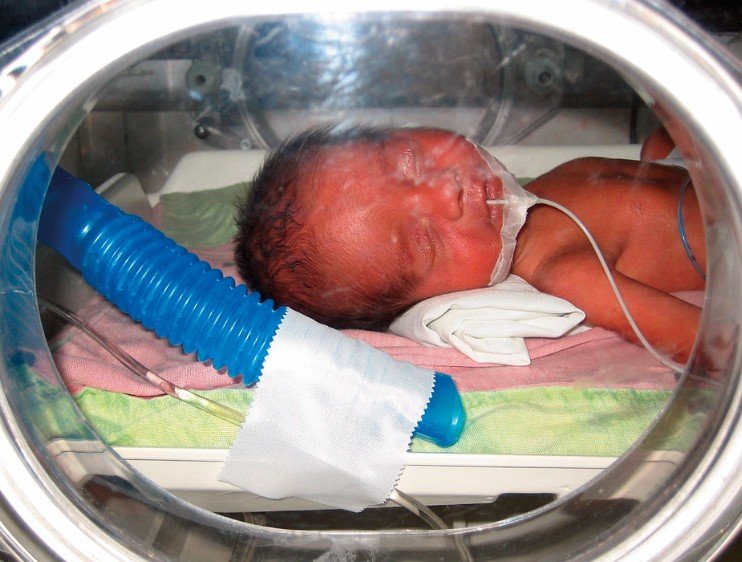The baby of 31-year-old Adriana Smith, a Georgia woman declared brain dead months ago, was delivered early by emergency C-section. Born weighing just 1 pound and 13 ounces, the baby remains in neonatal intensive care.
A Quiet Delivery After a Long, Uncertain Wait
There were no bright lights or cheerful cries. Just doctors, machines, and a silence that hung heavy in the room. Early Friday morning, inside a hospital in Atlanta, Adriana Smith’s child was born—three months early and into a world already full of complications. His name is Chance.
Adriana had been declared brain dead back in February. Her body, sustained on machines for months, was kept alive in a medical and legal standoff over what could or should be done. And now, that difficult stretch has reached a new chapter: the baby is here, alive, but fighting.
A Mother Lost Before Her Baby Was Born
Adriana was eight weeks pregnant when she collapsed in her home. Her boyfriend found her gasping for air, panicked, and called 911. She’d just been to the hospital the day before, suffering from severe headaches. That visit ended with a prescription and a discharge.
Hours later, it was too late. Blood clots in her brain had shut everything down. Doctors at Emory University Hospital pronounced her brain dead. But because her unborn baby still had a detectable heartbeat, Georgia’s strict abortion laws complicated what came next.

Her mother, April Newkirk, shared the devastating timeline. “We lost Adriana in February,” she told local media. “We’ve just been trying to give her son a chance since then.”
Legal Grey Zone and a Life Sustained by Machines
The hospital reportedly told Smith’s family that removing life support wasn’t an option. State law in Georgia restricts abortion after fetal cardiac activity is detected—usually around six weeks.
This placed medical professionals in a precarious position. Smith’s baby still had a heartbeat. But her brain did not.
Later, Georgia Attorney General Chris Carr clarified the legal position, stating that no law required doctors to keep a brain-dead pregnant woman on life support. But by then, Smith had been on ventilators for months.
Her body had essentially become an incubator. The decision to keep her on life support wasn’t just emotional or medical—it was tangled in legislative language and fear of legal consequences.
What We Know About Baby Chance
Born at just six months of gestation, Chance entered the world early, fragile, and incredibly small.
His weight—just under 2 pounds—puts him among the most vulnerable category of preemies. Statistically, babies born at 24 weeks have about a 60% to 70% survival rate in developed countries. But the road ahead is steep.
Chance is now in the neonatal intensive care unit. His condition, according to his grandmother, is stable but critical.
-
Chance weighed 1 pound, 13 ounces at birth
-
He was delivered by emergency cesarean
-
Born at approximately 24 weeks gestation
-
Currently under round-the-clock care in NICU
“We just want prayers for him,” Newkirk said. “That’s all we can ask.”
A Table of Events: From Collapse to Birth
Here’s a brief overview of the key timeline:
| Date | Event |
|---|---|
| February 2025 | Adriana Smith collapses at home; declared brain dead at Emory Hospital |
| March – May 2025 | Smith kept on life support, baby continues developing |
| June 13, 2025 | Emergency cesarean section; baby Chance delivered prematurely |
| June 18, 2025 | Family prepares for Smith to be taken off life support |
There is still no official statement from Emory University Hospital explaining the timing or decision behind the C-section. The Associated Press has reached out multiple times.
A Grieving Family in the Public Eye
April Newkirk has become an accidental spokesperson for a family thrust into the center of a deeply sensitive issue. What began as a personal tragedy became a public debate—about medical ethics, abortion laws, and how to treat the in-between cases that policy never quite anticipates.
“Her body was breathing, but my daughter was gone,” Newkirk said. “We kept her going for him.”
That kind of pain—carrying the weight of a loved one’s absence while hoping for new life—can’t be legislated.
Georgia’s law was meant to restrict abortion. But in this case, it prolonged death.
The Medical Community’s Dilemma
Doctors and hospitals often find themselves at the crossroads of law and ethics. This case exposed a chilling scenario: do you follow the science or the statutes?
Medical professionals were likely navigating a minefield of legal language, media scrutiny, and moral uncertainty. The fear of litigation can sometimes outweigh medical judgment. That’s what some observers believe happened here.
There’s also the matter of public perception. Would pulling the plug have triggered outrage from anti-abortion groups? Would keeping her on life support too long raise eyebrows among medical ethicists?
One thing is clear—Georgia’s healthcare system is still trying to process the ripple effects.
What Happens Next?
Adriana Smith is scheduled to be taken off life support. No precise hour has been disclosed. That moment will likely pass quietly, with her family nearby. She never got to hold her son, never saw him blink or breathe.
Chance, on the other hand, has a long road ahead. Doctors will monitor his lungs, brain, heart—each organ developing outside the womb now, inside the sterile walls of a neonatal ward.
